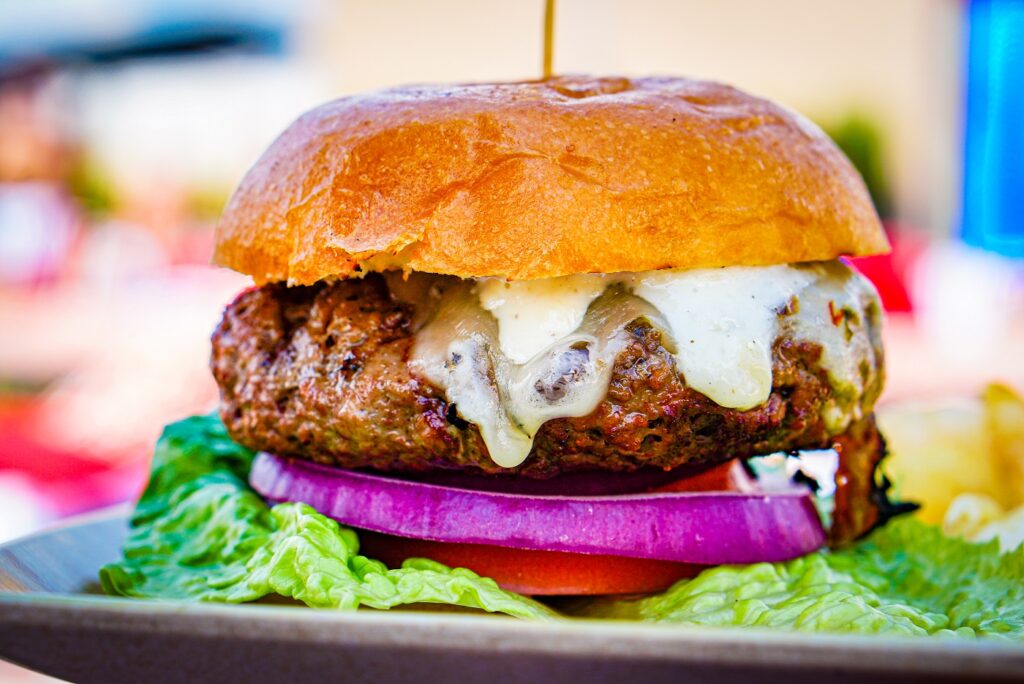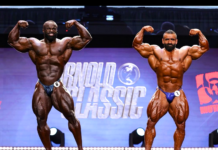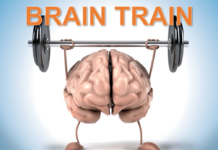A.I.-generated food by ZT_OSCAR
Sports nutrition is constantly evolving to meet the demands of athletes seeking optimal performance and recovery. As we look ahead, the future of sports nutrition holds immense promise, with groundbreaking developments poised to transform the field. From personalized nutrition based on cutting edge technology to advancements in functional foods and sustainable practices, athletes can anticipate a range of innovative strategies to fuel their success. The Barbell explores the future of sports nutrition.
PERSONALIZED SPORTS NUTRITION
Advancements in technology and genetics are paving the way for personalized nutrition plans tailored to individual athletes. Genetic testing and wearable devices provide insights into an athlete’s unique genetic makeup, metabolic rates, training goals, and specific requirements. This allows nutritionists and/or A.I. to design customized dietary protocols which optimize nutrient intake and maximize performance. (1)

See also: 3-D Printed Food and Sports Nutrition
NUTRIGENOMICS
The emerging field of nutrigenomics investigates the intricate relationship between nutrition and gene expression. Understanding how nutrients influence gene activity could lead to personalized nutrition plans that optimize performance and recovery. By deciphering individual genetic variations, A.I. and sports nutritionists can develop targeted interventions (such as specific foods or meal times) that harness the power of nutrigenomics for improved outcomes. (2)
FUNCTIONAL FOODS AND NUTRACEUTICALS
The future of sports nutrition is likely to witness the rise of specialized functional foods and nutraceuticals. Ginger, omega-3, and green tea are three diverse examples of nutraceuticals. These products offer additional health benefits beyond basic nutrition, addressing specific aspects of athletic performance, such as muscle recovery, inflammation reduction, and cognitive function. Researchers are exploring innovative ingredients and formulations to develop functional foods tailored to the unique requirements of athletes. (3)
PLANT-BASED AND SUSTAINABLE SPORTS NUTRITION
As environmental concerns and ethical considerations gain traction, plant-based and sustainable nutrition is expected to grow in popularity among athletes. Plant-based diets and protein sources offer numerous health benefits while reducing the carbon footprint. If athletes increasingly adopt plant-based nutrition plans or incorporate plant-based protein sources into their diets, this shift will drive the development of novel plant-based sports nutrition products. (4)

In response to growing sustainability concerns, the sports nutrition industry is expected to prioritize eco-friendly packaging solutions. Biodegradable materials, minimal packaging waste, and increased recycling initiatives will help minimize the environmental impact of sports nutrition products. Such measures align with athletes’ and consumers’ increasing emphasis on sustainability and environmental responsibility.
MICROBIOME AND GUT HEALTH
The role of the gut microbiome in athletic performance is gaining attention, and future sports nutrition may focus on optimizing gut health. Probiotics (such as kefir), high-fiber prebiotics (such as whole grains), and other interventions could be utilized to enhance digestion, nutrient absorption, and immune function. Scientific insights into the gut microbiome could lead to tailored nutritional plans that improve athletic performance through improved gut health. (5)
TECHNOLOGY INTEGRATION
The integration of wearable technology, artificial intelligence, and data analytics will revolutionize sports nutrition. Athletes will have access to real-time feedback on their nutritional status, hydration levels, and performance metrics. This information can guide optimal dietary choices, hydration strategies, and recovery protocols, empowering athletes to make data-driven decisions for enhanced performance. (6)

See also: Wearable Technology Named 2023 Top Fitness Trend
COLLABORATION WITH SPORTS SCIENCE
The future of sports nutrition will witness deeper collaboration between sports nutritionists and sports scientists. By joining forces, researchers can explore the impact of nutrition on performance, recovery, injury prevention, and overall well-being. This collaboration will result in evidence-based nutritional guidelines tailored to different sports and individual needs, providing athletes with cutting-edge strategies to optimize their performance. (7)
THE FUTURE OF SPORTS NUTRITION: CONCLUSION
The future of sports nutrition promises a revolution in how athletes fuel their performance and recovery. With advancements in personalized nutrition, nutrigenomics, functional foods, and sustainable practices, athletes can expect tailored strategies that optimize their potential. Embracing technology, prioritizing gut health, and collaborating with sports science will pave the way for evidence-based nutrition plans designed to unleash peak athletic performance. As the field continues to evolve, athletes and sports nutrition professionals alike can look forward to a future where nutrition plays a pivotal role in unlocking athletic excellence.
SOURCES
1. Kavouras, S. A., et al. (2020). “Personalized hydration strategies for athletes.” Sports Medicine, 50(1), 15-25.
2. Murgia, C., et al. (2021). “Nutrigenomics and sports nutrition: Personalized intervention for athletic performance enhancement.” Nutrients, 13(2), 372.
3. Phillips, S. M., et al. (2020). “Nutritional supplements in support of resistance exercise to counter age-related sarcopenia.” Advances in Nutrition, 11(5), 1122-1136.
4. Lynch, H., & Johnston, C. (2019). “Plant-based diets: Considerations for environmental impact, protein quality, and exercise performance.” Nutrients, 11(1), 370.
5. Petersen, L. M., & Larsen, N. (2017). “The human gut microbiome in sports medicine and exercise: Current knowledge and future perspectives.” Scandinavian Journal of Medicine & Science in Sports, 27(12), 1361-1377.
6. Sharples, A. P., et al. (2020). “The effects of pre- and post-exercise nutritional supplementation on exercise-induced muscle damage: A systematic review and meta-analysis.” Sports Medicine, 50(5), 999-1035.
7. Impey, S. G., et al. (2018). “Fuel for the work required: A theoretical framework for carbohydrate periodization and the glycogen threshold hypothesis.” Sports Medicine, 48(5), 1031-1048.
















































